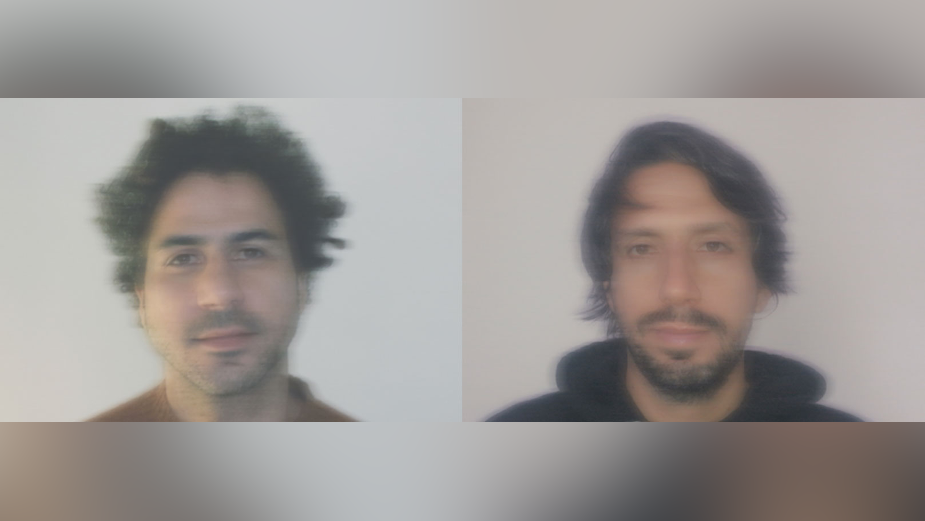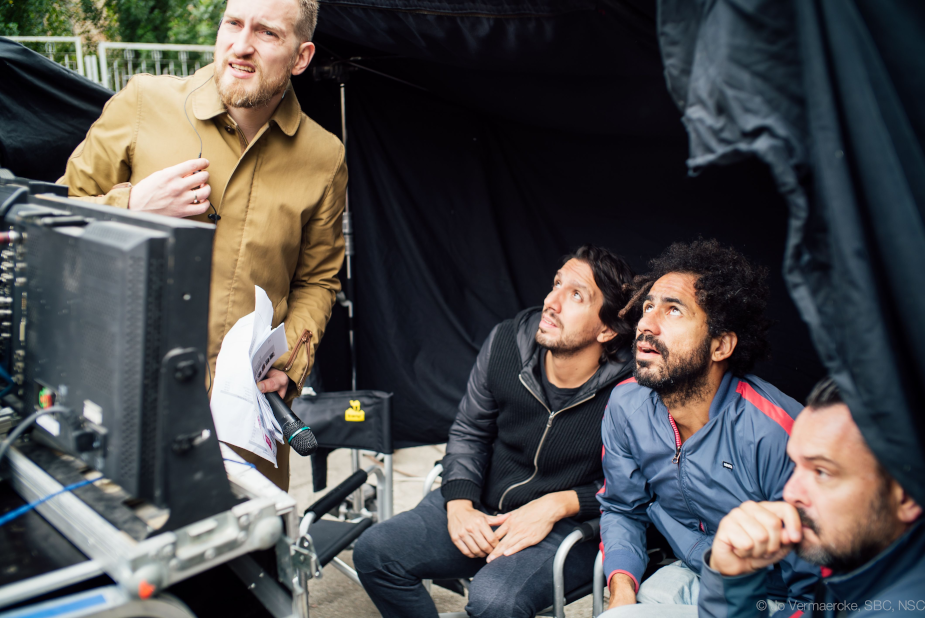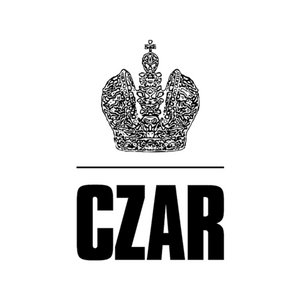
The Directors: SALSA

Salsa is Brazilian directing-duo based in both São Paulo and Bussels. The creative marriage of two great friends from college, Diego Santana Claudino and Guto Azevedo. Humanity is at the core of their work, felt in the unique texture of their films where narrative relies on truth and emotion. Even with the most sensitive topics
Name: SALSA (Diego Santana Claudino & Guto Azevedo)
Location: Brussels, Belgium (Diego) and São Paulo, Brazil (Guto)
Repped by/in: Czar in Belgium, Henry in France, Primo Content in Latin America and Spain
Awards: Young Director Awards (Cannes), Clio Awards, The One Show, London International Awards, Eurobest, Epica Awards, The New York Festivals, El Ojo de Iberoamerica & MTV Europe Music Awards.
What elements of a script sets one apart from the other and what sort of scripts get you excited to shoot them?
Simplicity, a good idea and truth. Nothing is more powerful than a simple, well-told idea. We like to tell stories that resonates with the viewer and creates a honest human connection. That is what we mean by truth. Not a copy and paste depiction of reality or an imposed meaning on a story but a true moment of connection. Before being directors we are audience, so a good thermometer to jump on a project is to ask ourselves: is this a story that we, as spectators, would like to watch? Is there anything fresh in its message, form or depiction? Where is the truth of this idea?
How do you approach creating a treatment for a spot?
There is no "one size fits all" recipe. But a good starting point is immersing ourselves in the main subject of the story. If your film talks about the relationship between a parent and a child, watch films about it, documentaries, random videos on youtube, talk to your parent, play with your child and the list goes on. But unfortunately the clock of advertising deadlines ticks faster than any research time ever will and we have to dive as deep and as fast as we can, with the usually very little time we have in our hands. But we always make this immersion exercise, even by simply revisiting our memories.
After having a good dose of real-life inspiration, we jump into the more practical research of images and films. And then the world is our oyster, we go to Pinterest, Behance, Flickr, Film grab, Vimeo, YouTube, TikTok, Instagram, books… anything we can get our hands on during that time we have. Also our work has a very strong connection with music, so we usually create playlists on Spotify with the mood of the film and brainstorm over them.
Research is a big part of our process, but we approach it with caution. It’s a bless that can easily turn into a curse, making all treatments (and films) look the same and creating solid immutable ideas in the minds of agency/clients that can be hard to work around during production. We always aim for that balance of being specific and clear about our vision, but leaving the door open for the process to guide us. And more and more we boil down our treatments to what we believe is really relevant for that story, avoiding the usual topics you see in every treatment and looking for other ways of materialising our vision: sometimes through a drawing, others through a mood video or maybe just a famous picture. It’s not always that we nail that perfect off-track materialisation, but we always try to. We know this is all a gamble and, at this stage, we would rather risk the “high rewards”.
If the script is for a brand that you're not familiar with/ don’t have a big affinity with or a market you're new to, how important is it for you to do research and understand that strategic and contextual side of the ad? If it’s important to you, how do you do it?
Again, this is part of the research and immersion process we just mentioned and it kind of already starts in our initial conversation with the agency. We always ask about the backstory of the campaign and their strategic and creative decisions. They are so further away in the process, in the trenches of the daily approvals, that sometimes that initial sparkle/ reason to be of the idea might not be that transparent in the script we receive. We know that things naturally get lost on the way, so we try to scavenge these gems during that initial chat.
In our research we always check previous adverts of that brand and their competitors as well, so we have a good foundation to attempt something new that also dialogues with the universe of the brand. Alongside the main theme of the spot, we also try to understand the audience we are speaking to. It's like following the logic of the discovery channel documentaries: “Who are they? How do they live? How do they reproduce? ” Haha ... Jokes aside it is as if we already know the techniques of genre, but still need to understand the character motivations. A constant exercise of humility and one of the best parts of our profession. The worst case is that if you don't get the pitch, at least you had fun and learned something new in the process.
For you, what is the most important working relationship for a director to have with another person in making an ad? And why?
Film is a collaborative work and every single pair of hands matter. Sounds cheesy, but it is the truth. To us the most important relationships are the producers and the cinematographer. A creative producer makes a huge difference in the whole process, he or she is our first partner, helping us thinking solutions and believing and supporting our vision since day one. Without them, the whole process crumbles. Once the engine is rolling our relationship with the cinematographer is key and we always try to bring him/her into the project as early as we can. Let’s say the producers are our engineers and the cinematographers our architects. We need them both.
What type of work are you most passionate about - is there a particular genre or subject matter or style you are most drawn to?
We are drawn to works that give us some room for constructing strong visual narratives. And by strong we don’t mean a cry out drama, we mean a genuine gut feeling that can come from a laugh or from a tear. We want people to recognise themselves in our films and react to that, and most of this has to do with the search for truth we mentioned before. When we design a film, we try to set up situations and environments where serendipity and great performances can happen. A safe space where the actors can experience the moment instead of acting, so real life has a stage to play.
It all sound a bit too naive for the advertising world, we are well aware of that, but we would rather lie to ourselves and keep this romance going strong. And truth be told, more often than not, we do manage to 'capture life' on screen. At least in the way we intended to.
What misconception about you or your work do you most often encounter and why is it wrong?
“Your reel is too dark” is probably the sentence we heard most in the beginning of our career. And now we have the classic “I don’t see any 30 seconds spot on their reel, are you sure they can tell a story in 30 seconds?”
Advertising is a niche business and we do understand the boxes we have to be put in sometimes. Even if we disagree with them sometimes. Most of these misconceptions are actually time management issues that are natural to the process, people need to solve their problem and they need to solve them now. We empathise with their struggle, but at the same time we ask them to see past these labels and look at talent and potential. Another misconception anecdote we just remembered: once in Brazil we were not accepted on a pitch because we “didn’t have any celebrities on our reel” but little they knew at that exact time we were pitching a world cup spot in Germany with all of the German national squad in the film. So we were dismissed because of a single celebrity in Brazil while being embraced by eleven others in Germany. What an irony.
Have you ever worked with a cost consultant and if so how have your experiences been?
Yes, it is very unfortunate that sometimes these decisions are being taken by people more concerned about their spreadsheets than with a great idea and all the potential added value a well crafted story can bring to the brand. We also wish its whole process were faster. It is often the case we gotta pull treatments in 24Hs and have to wait for weeks for these negotiations. Sad, but true.
But at the end of the day, it is what it is. We used to get frustrated before, now we just accept as part of the process. As the boxers say, you gotta roll with the punches.
What’s the craziest problem you’ve come across in the course of a production – and how did you solve it?
Do you have some time? hahaha… We will mention just one story.
We were shooting abroad for an international project. The very first scene was a drone shot over a small urban football pitch, next to a eight storey building. We had 250 extras locked inside the court and about a dozen other on the fire staircase. Above them was our drone carrying a quite heavy Alexa with proper lenses.
Through the screen of our viewfinder we saw that the drone was acting weird, we looked up just in time to witness firsthand the “craziest problem we’ve come across” (arguably): the drone lost control and start descending towards the crowd. Everyone started shouting and running. “Luckily” the heavy wind pushed the drone towards the building, hitting the wall and “only” cutting the arm of the extra that stood there. This 250 crowd all rushed at the same time to escape through the very narrow door of the court, as you can imagine (and understand) nerves were on edge then.

We had to stop the shooting for a while to assure the safety of our extras and calm everyone down. Our injured extra went straight to the hospital and luckily didn’t have any major harm. A few of the extras run away, but we managed to calm the majority with the promise of not using the drone anymore and leaving the door of the court open just in case. We finished the shot with a Steadycam mounted on the last floor and acting as our drone. Coincidentally the same Steadycam got our first reaction on camera the moment the drone started bugging.
How do you strike the balance between being open/collaborative with the agency and brand client while also protecting the idea?
It is important to know how to filter constructive notes from distractions to the final result of the film. In our experience the best projects are born when people make decisions thinking about what is best for the job at hand, instead of ways of saving their job position based on potential fear of the client or their bosses.
We always try to bring all the involved parties to same side of “What is best for the film?”. That’s our main reminder throughout the whole process. The best way we found to do that is to be transparent about our approach since day one and always look for ways of refining the film until the final cut. When all the parts involved are on the same thought wavelength, everyone end up having something useful to contribute. The reality is that we have been fortunate enough to find creative partners that are as committed with the final result as we are.
This being said, at times there are moments when we strongly believe in an idea that our counterparts might disagree. When that is the case, we always try to reserve some time on set to shoot them and push the discussion further to the edit room. With the picture done it is way easier to see what we meant back then. This is not a rogue mission btw, it is an open conversation we have with agency, client and our production to then carefully plan these “stollen shots” after we finished the storyboard ones. We saw David Fincher saying once “If you gotta fail, you gotta fail at your own terms” so we might as well try it anyways.
What are your thoughts on opening up the production world to a more diverse pool of talent? Are you open to mentoring and apprenticeships on set?
We we are 100% pro diversity and talent. Creativity and storytelling is about the exchange of experiences and ideas and being exposed to different backgrounds and practices can only add to the process. And yes, we are a super open to mentoring and apprenticeship, we wish we had a direct mentorship during our first steps. Because most of the tips and tricks we had to figure out on our own.
How do you feel the pandemic is going to influence the way you work into the longer term? Have you picked up new habits that you feel will stick around for a long time?
It’s proven now that we can get projects off the ground remotely so things can, and should, move faster now. The last month, for example, we had 3 projects running simultaneously in three different countries (at different stages of production). Shoot and location visits were on site, but all of the rest happened remotely. Without a doubt this was only possible due to the virtual workflow and mindset of these current times (plus the fact we are a duo, based in both hemisphere of the world).
A clear example in our experience is remote offline presentation. Before the pandemic it was never a possibility, and nowadays it is a necessity. We do prefer a tête-à-tête offline, but what this new habit allow us is the possibility (or acceptance rather) of working with editors and other collaborators anywhere in the world, something that would never be allowed (or advisable) in our projects just a few years ago. Even though the technology was already there. We are not happy with the current state of the world, nor do we believe the virtual workflow is the way to go all the time. But collaborating remotely to save time is definitely a habit we will embrace for a long time.
Your work is now presented in so many different formats - to what extent do you keep each in mind while you're working (and, equally, to what degree is it possible to do so)?
With the budgets and deadlines we have to face, I don’t believe it is possible to consider so many formats for a single film. Each format has its own visual language and we believe they are stronger if thought with their own vocabulary in mind. That’s not the case, unfortunately.
And quite often we are asked to frame 2:35 considering a 9:16 crop at the same time. Which is of course a non-sense everyone pretends to pay attention to, but disregard anyways. So we concentrate on making the very best possible film we can for its main format and then adapt that to other formats.
What’s your relationship with new technology and, if at all, how do you incorporate future facing tech into your work (e.g. virtual production, interactive storytelling, AI/data-driven visuals etc)?
Technology is like time, we can’t stop it. So we might as well embrace it and make the best use we can. Our workflow is only possible thanks to technology (Diego lives in Belgium and Guto in São Paulo), so we are operating virtually since day one of SALSA.
But we don’t suffer from tech FOMO. We like gears and gadgets, but our starting point is always an idea and a story. For us the tech should only enhance that. There is no better tool than the human eye. A great friend of us, a stablished landscape photographer and a teacher, always says to his students “put the damn camera down and use your eyes to look around. Find the subject, think about your photo, then you click ”.
Which pieces of work do you feel really show off what you do best – and why?
If we would have to pick four, we would say: “Beautiful Dreamer” for Pfizer, “Memoires” for the Kempen Region, “Heaven” for No Sex Trafficking and “The Life of Ella” for Special Olympics and Toyota. We like the way narrative and atmosphere blend with advertising on these four projects.
Beautiful Dreamer
Memories
Heaven
The Life of Ella













